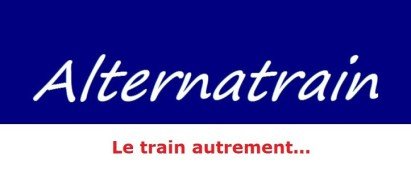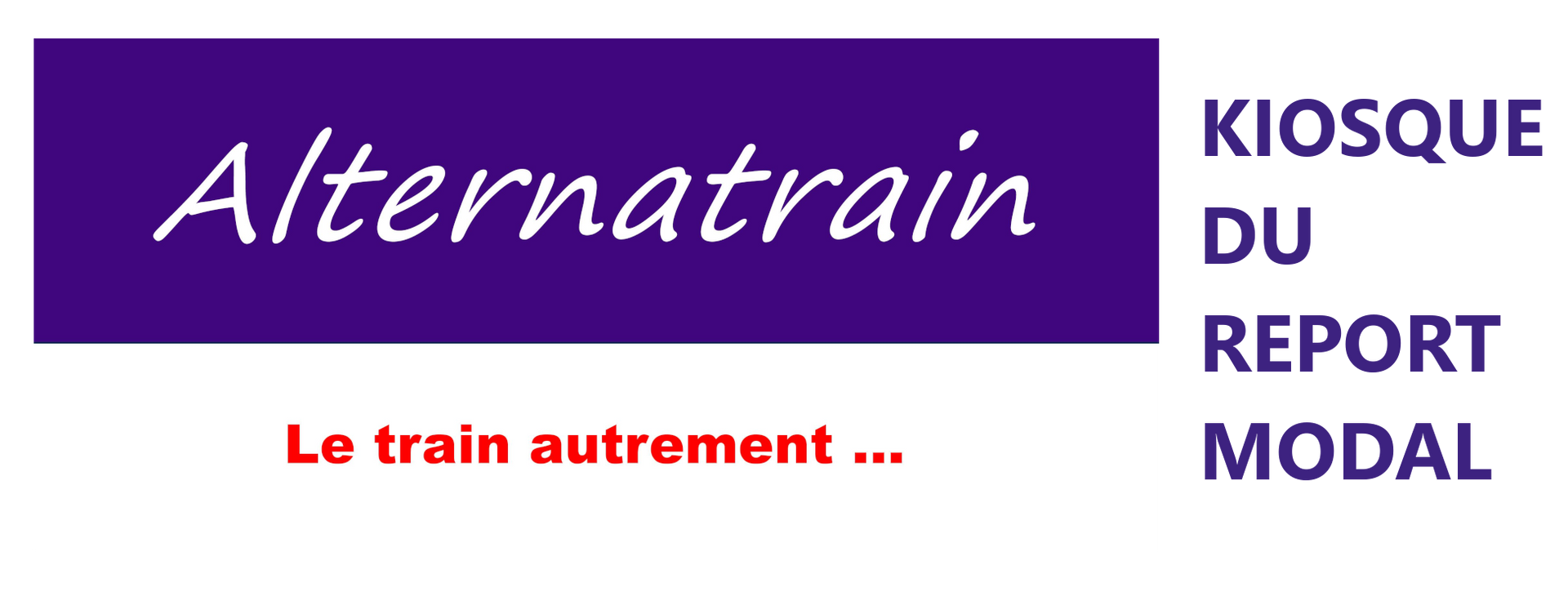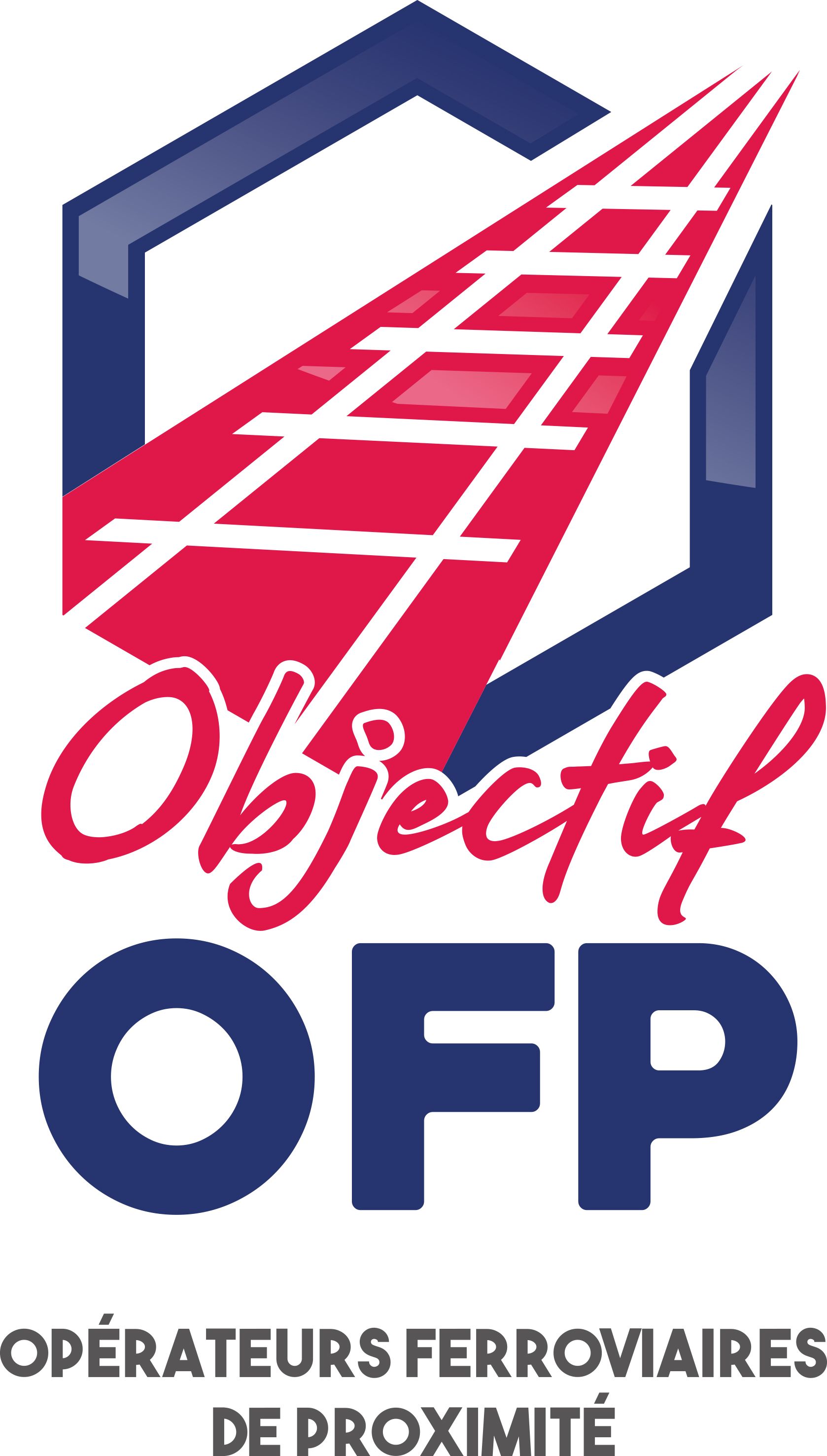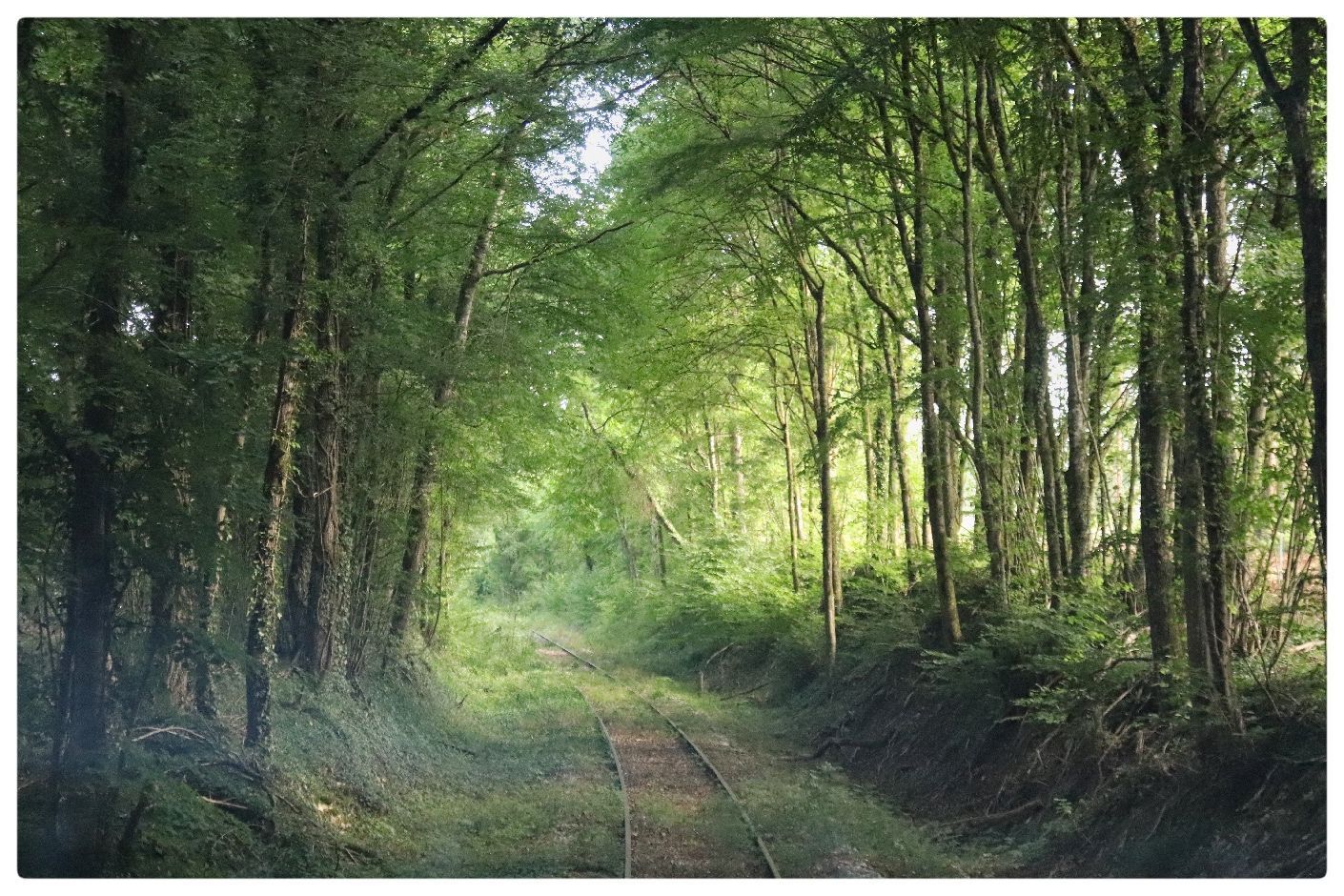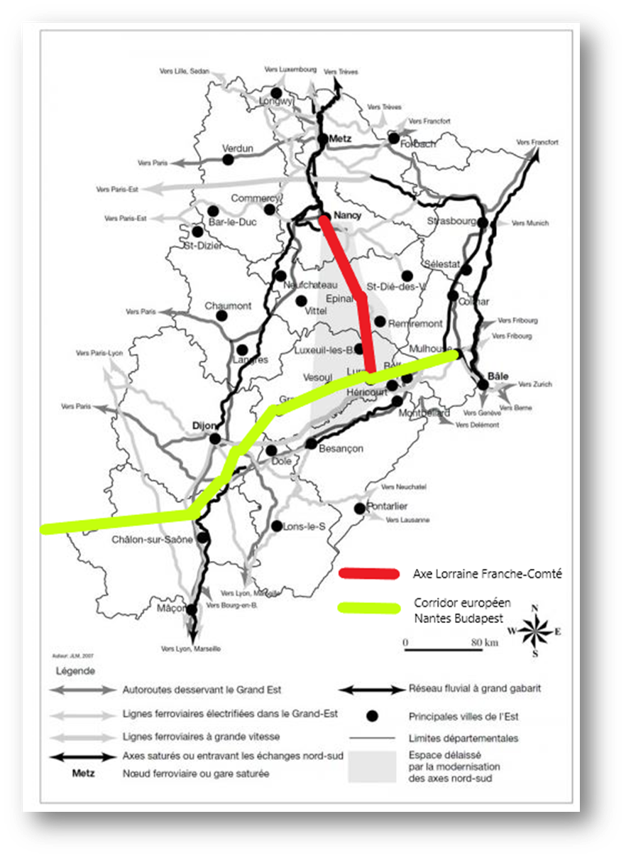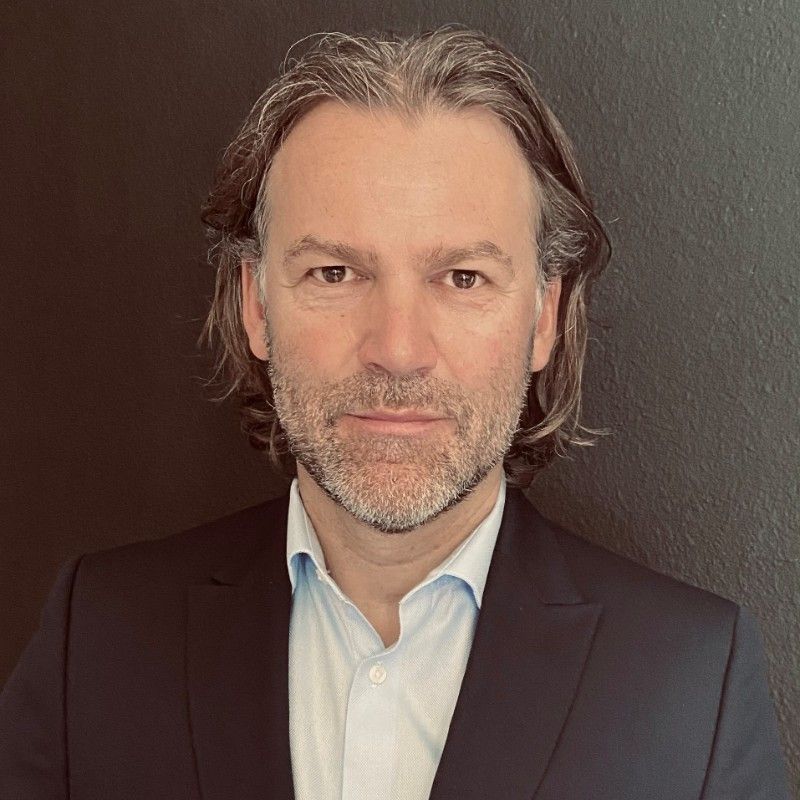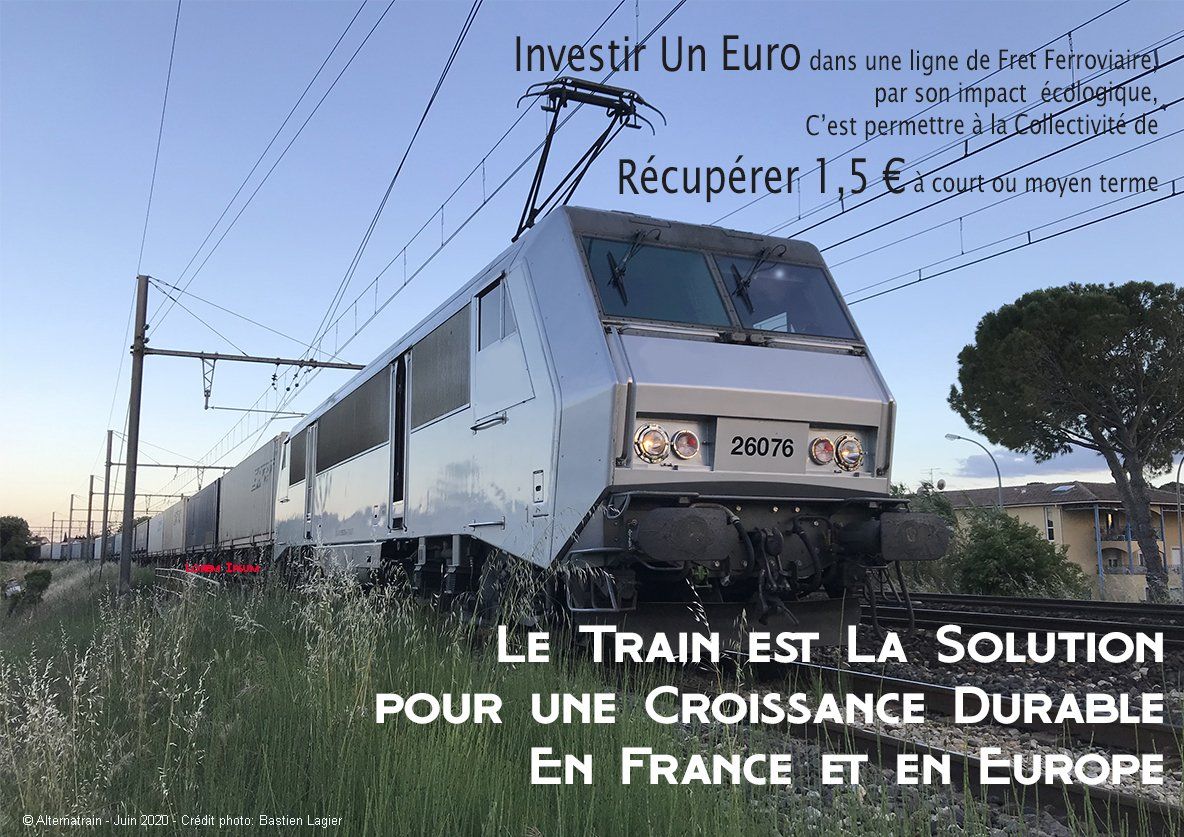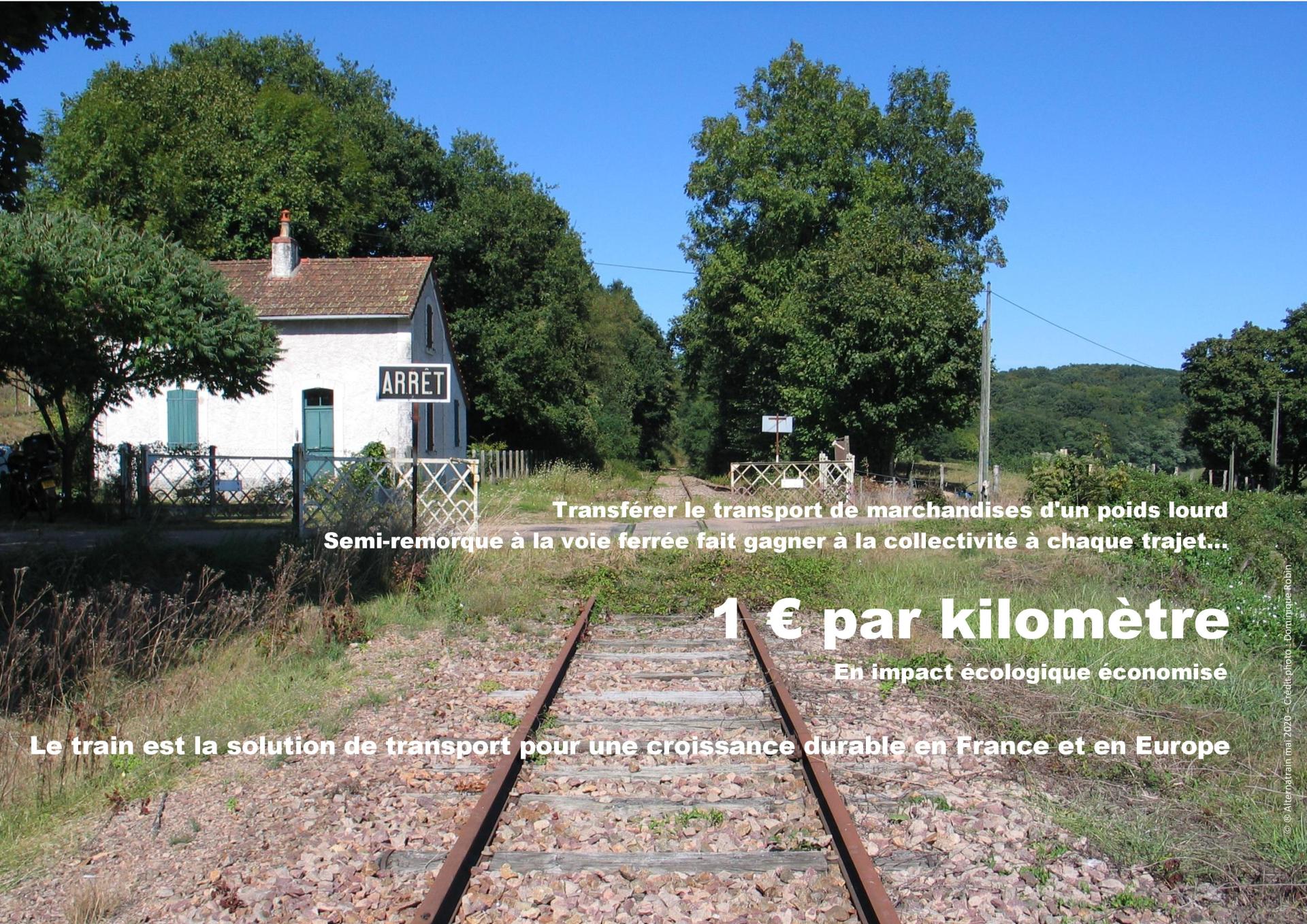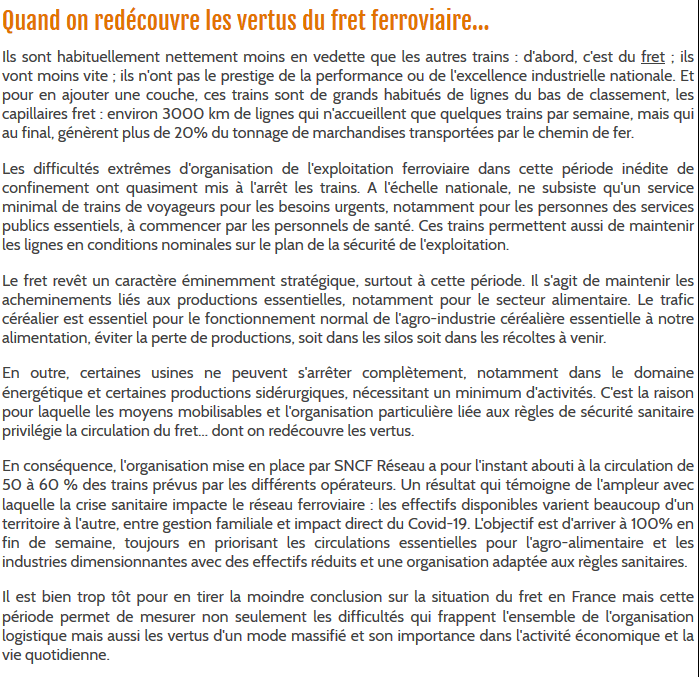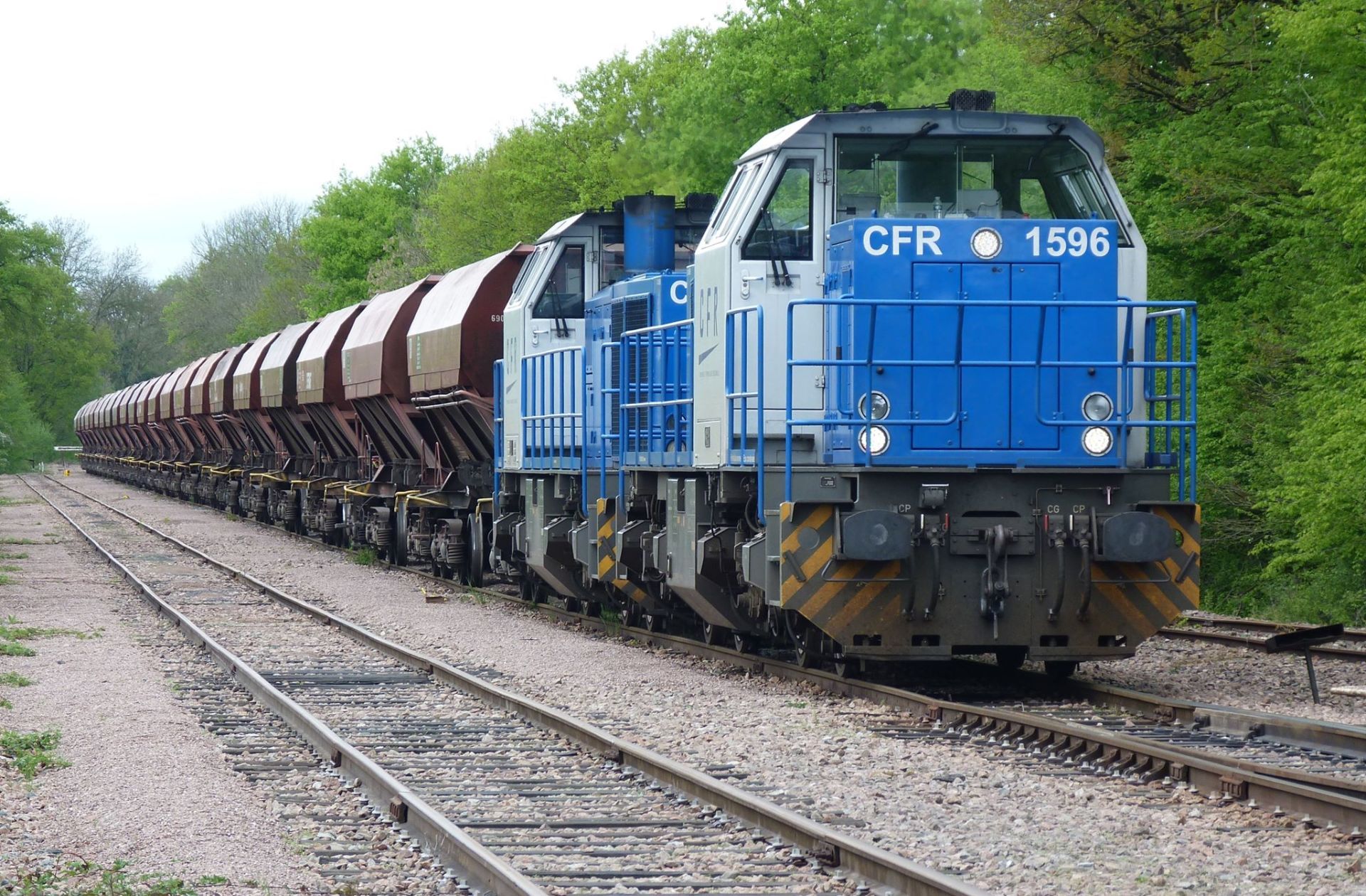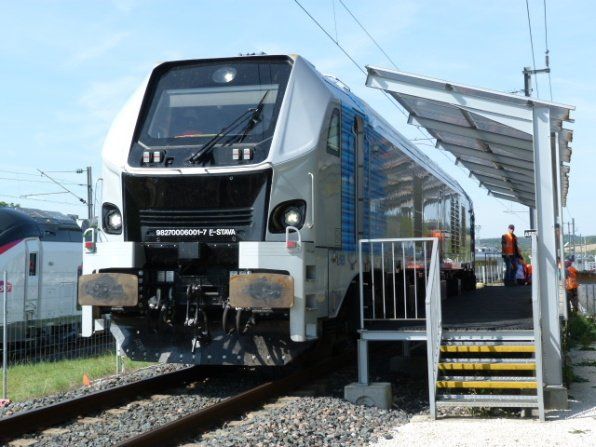Our think tank team is now complete.
Our think tank is preparing the launch of an institutional campaign to promote rail freight
in partnership with 4F and Objectif-OFP.
Discover the message in preview!
Discover the new achievement resulting from the alliance of our think tank with Objectif-OFP
Everything you want to know about modal shift if you are a shipper or concerned with the railway sector!
Alternatrain says No to total incoherence
European decisions
on transport...
Well done Mr. Minister,
Hold on and be firm on this position.
facing the arrival of megatrucks!
Gloomy assessment for railway investments in 2022...
Even though it already does a lot, the State could do better!

When the official ART report highlights the dissonances in official speeches on the subject of the effort devoted to rail...
This file concerns the Bourgogne Franche-Comté and GrandEst regions
Our think tank team is growing and now welcomes two new members
Welcome to Thierry Tournier and Romain Bailly!

The Rhine-Rhône connection file is evolving: it is becoming
Rhine Rhone Lorraine Furrow Connection
Go to page "Current files" to learn more.

The hydrogen locomotive will arrive in France in 2025
Press release
Paris, November 22, 2022
From 2025, Nestlé Waters France will use the first hydrogen-powered freight train thanks to an innovative solution developed by Alstom and ENGIE
• Nestlé Waters will be the first company in Europe to benefit from the hydrogen fuel cell solution for rail freight, developed by Alstom and ENGIE, for the transport of its goods.
• The objective is to run the first freight train powered by electricity from the Vosges factory
hydrogen thanks to a hydrogen generator wagon system designed by Alstom and powered by
renewable hydrogen by ENGIE, from 2025.
• Ultimately, this project should enable Nestlé Waters to reduce emissions by 10,000 tonnes
CO2 equivalent per year.
• This new collaboration is in line with the actions carried out over several years
by Nestlé Waters to decarbonize its supply chain.
In line with its supply chain decarbonization roadmap, Nestlé Waters will be the first company in Europe to benefit from the hydrogen fuel cell solution,
intended for mass rail freight, including the supply of renewable hydrogen,
developed by Alstom and ENGIE. It is estimated that this project will reduce emissions of
101,000 tonnes of CO2 equivalent per year, ultimately, i.e. a 90% reduction in its annual emissions
current. This corresponds to the annual emissions of more than 30,000 round trips Paris <> Nice by car.
A true innovation, this new hydrogen solution will be designed using a fuel cell system
high-power fuel that can power electric locomotives in non-electric sectors
electrified. This solution will be able to transport goods over long distances,
national and European scale.
From 2025, this freight train powered by electricity from the rail network and by hydrogen on
non-electrified sectors will aim to gradually ensure the transport of natural mineral water
VITTEL® between the factory located in the Vosges and its various distribution centers in France (i.e.
Vittel/Arles 600 km and Vittel/Montreuil-Bellay 760 km). The dual-mode solution will consist of a
part of a generator wagon integrating a high-power fuel cell system powered
in renewable hydrogen and on the other hand an electric line locomotive, the whole being connected by an electric power cable. The generator wagon will be able to supply the locomotive with electricity in the absence of a catenary.
Press release from Objectif-OFP
1/12/2022
LThe 12th OFP Objective Day, associated with the 4F Alliance, was a strong railway moment, bringing innovative dynamics. But we must now manage to mobilize all the players, which will not be possible without your active contribution.
Hence, attached, this text/manifesto in the continuity of our morning of 23/11 and the discussions it triggered. This "manifesto" proposes the main lines of rail freight that the current five-year term, in our opinion, must put into action.
We propose and ask you, if you share this vision, which is also a guide for action, to participate in the propagation of this manifesto by distributing it in all your contact networks.
Rail freight: the future is now
2022 will go down in history as the year of the shift to another world that will have to address a host of challenges, including climate, decarbonization, and clean energy production. There is an urgent need for action.
Rail freight has a decarbonization power and energy frugality due to the metal-on-metal rolling of the wheel on the rail, which calls for making it a structuring player in intermodal green logistics, a criterion for the location of economic activities.
This involves an industrial project whose main lines are becoming clearer:
1. The development of a national railway development plan extended by intermodalities, road and river, open to Europe and beyond, connecting or reconnecting territories and ports to rail Europe.
2. The densification of the use of the network, passengers and freight. It will capture the spiral of increasing railway yields, a necessary condition for the financial balance of the Network. This new look at the Network is decisive for doubling the market share of freight, the objective of the Climate Law, and putting France on the trajectory of returning to its European railway rank.
3. The impetus for a new rail/road alliance, an alternative to the energy and rare metals abyss that would be a European "all-road" saturating the infrastructures. This "win/win" partnership will open up a space for development for the French road pavilion and will bring road logistics know-how to rail.
4. A new territorial railway anchor, its capacity to detect traffic, to go and get it, distribute it, pool it, and feed high-productivity arteries. Each territory is a special case: capillaries, branches, intermodalities, port hinterlands. Regions, territories, metropolises, shippers, CCIs, CESERs, etc., in conjunction with SNCF Réseau déconmédiaire, must seize this underestimated field of innovation: towards intermodal Regional Action Plans. Warning! Centralized digital information cannot replace know-how and links on the ground.
5. Investment in a new modernity of the public heritage that is the rail network, whose non-TGV lines are among the most dilapidated in Europe, increasing its capacity, its reliability, adapting the size required by the combination, developing cybersecurity, etc.
6. Reconciling short-term constraints with long-term objectives. This is undoubtedly the greatest difficulty. This is demonstrated by the current situation which, if we were to let the market dynamics alone play their part, with the cost of electricity being higher than that of oil, would lead to a modal shift from rail to road and to serious economic difficulties for operators. In the same way, we must stop the spread of monomodal road logistics platforms which, de facto, lead to a European "all-road". Should we encourage the "winners" of a carbon economy to invest in green logistics?
* *
The conditions are met for a strategic freight shock, territorial and European, bringing the consensus, societal, political, union that France needs so much, generating motivation, creating green jobs for young people. Territories, operators, SNCF Réseau, State, we must initiate this dynamic, make it a political priority, a strong axis of the Network Performance contract, include it in a Programming Law on rail freight committing several five-year terms.
Jacques CHAUVINEAU Philippe FRANCOIS André THINIERES
President of Objectif OFP Deputy General Vice-President
October 6, 2022
It is with sadness that we announce the death of one of our own:
Louis Sarrazin in Vienna, following a long illness
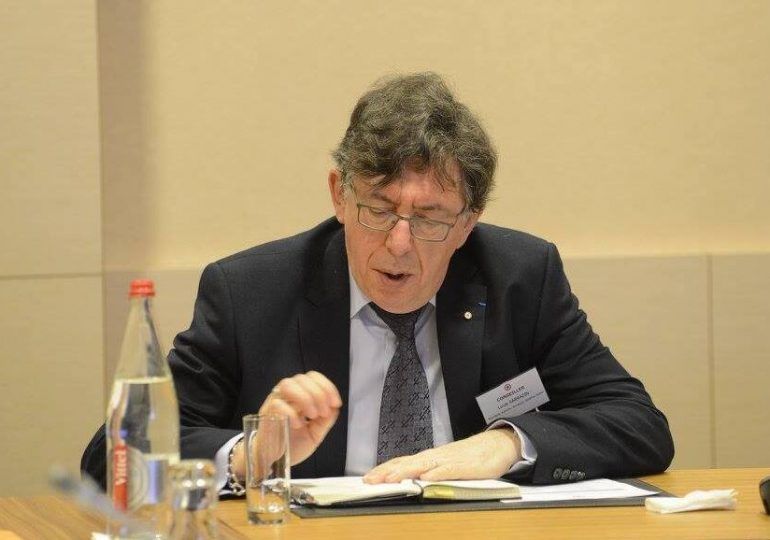
Our think tank points out that the effects induced by the rail freight connection of the Rhine-Rhône axes would allow in the medium term
a reduction ofone million tons of CO² representing -1% of transport-related emissions annually.
Our think tank is launching a petition on Change.org to block the construction of a greenway between Gray Vesoul which would prevent the construction of the European corridor Nantes Budapest
To click HERE to learn more and sign the petition
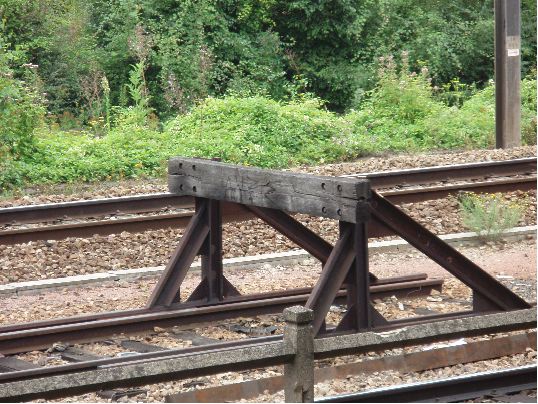
As part of the law on climate change, presented to the National Assembly on March 3, amendment proposal no. 4269 requests a report from the Government on the harmonization of French and European freight gauges.
To view the written question click HERE
Furthermore, the 4F group is calling in another amendment for the doubling of the rail freight contribution targets by 2030.
As part of the discussion of the finance law, Alternatrain is proposing a tax incentive policy for new buyers of electric or bimodal locomotives with its participation in the development of amendment I-2037.
Opinion read in the press and widely shared by our think tank on the subject of new fashionable railway concepts:
The only certainty we can have is that these concepts risk lastingly delaying the implementation of solutions adapted to populations and whose costs and technique are perfectly known! The soul of business is the abstract!
More than ever, our file on connecting the Rhine and the Rhône by rail freight is relevant...
Also check the latest updates on the "Current Files" page
10th day of the French Rail Freight of the Future and OFPs
On Thursday, November 19, 2020, the annual rail freight meeting organized by Objectif-OFP took place as a webinar (due to the health crisis).
Relive this event by clicking HERE
The impossible task of reviving rail freight
Emmanuel Macron wants to develop freight transport by train again, as well as travel by night trains and journeys on small lines.
By Jean-Michel Bezat Published today at 09:27, updated at 09:31.
The World July 15, 2020
The train has not had such a high rating for a long time. In his televised interview on July 14, the President of the Republic indicated that he wanted to "massively redevelop rail freight", night trains and small lines, "because all of this allows us to make savings" and "reduce our emissions" of greenhouse gases. Emmanuel Macron's statement is not a surprise: it responds to the demands of the Citizens' Convention for the Climate, of which he has committed to taking up 146 of the 149 proposals.
In 2018, most of the 9,000 kilometres of small lines escaped the closure recommended by the Spinetta report, with the government preferring to initiate discussions on a takeover by the regions of these rarely profitable daily trains. But SNCF Réseau estimates that more than 7 billion euros of investment will be needed until 2028 to bring them up to standard.
As for night trains, there are only two left: Paris-Briançon and Paris-Portbou. "Emmanuel Macron is talking about [their] return? I say dare!," reacted Karima Delli, president (EELV) of the transport committee of the European Parliament. But we don't finance trains with fine speeches. So we want 7 billion like for aviation."
Article reserved for our subscribers Read also Faced with the crisis, Macron maintains his course but “changes path”
Efforts to be made
Money will also be needed for rail freight, which was suffering from unbridled competition from roads well before the health crisis. It now only handles 10% of freight traffic, far behind Germany (18%), Austria (32%) and Switzerland (35%), while the tonne transported emits 9 times less CO2 than road freight. Jean-Pierre Farandou, CEO of SNCF, one of the main players in the sector, announced its revival in February.
But the strike against the pension reform and the Covid-19 crisis have further weakened Fret SNCF, a public limited company that is no longer safe from bankruptcy. To attract shippers, it will be necessary to have "paths" that do not force these trains to run at low speed, assistance with the transhipment of truck-train containers as well as "isolated wagons" (custom traffic), or even temporary free use of the rail network. These are the efforts that must be made, according to the sector, to double its market share by 2030.
Deuxième campagne de promotion du fret sur les réseaux sociaux juin 2020
Launch of a new freight promotion campaign on social networks at the end of May 2020
Our think tank makes available to all below the theme of its new campaign to promote modal shift with the shock argument
"Transferring a semi-trailer onto the railway track earns one euro for every kilometre of travel"
Please feel free to take up, share and widely distribute this message around you and, if possible, to as many of your elected officials as possible...
Alternatrain Press Release
03/24/2020
France, Europe and the entire world are currently facing one of the worst trials that humanity has encountered in centuries.
Bill Gates at the beginning of 2015 showed lucidity and premonitory clairvoyance on the current risk and unfortunately he was not heard at the time.
"We are at war" said the President of the French Republic during his last speech and no one can deny it by adding factually that this is a war of global dimensions against Covid 19.
The lockdown period is expected to be long and it is clear that even if the theoretical lockdown ends, the risk of the pandemic returning will remain real until a medical treatment has been developed to eradicate the problem once and for all.
But let us remain resolutely optimistic and anticipate a return to a healthy situation. The economic damage caused by Covid 19 will be enormous and it is appropriate to think now about "afterwards"
Certainly Europe intervenes in the financial markets to support them, but is this really the right solution and can it not be found elsewhere?
The end of the Second World War episode saw the application of the Marshall Plan (Thanks to the United States by the way, we are easily amnesiac when everything is going well). It consisted of an American program of loans granted to the different States of Europe to help rebuild cities and installations bombed during the Second World War.
These loans were subject to the condition of importing an equivalent amount of American equipment and products. In four years, the United States lent Europe 16.5 billion dollars (the equivalent of 173 billion dollars in 2019).
This device has remained very rare, even unique, to this day...
The operation was a total success at the time, even though its effects were spread out over several years.
The major risk of the current system, whether French or European, is that at the end of the current crisis, a support policy will be implemented that is essentially oriented towards the financial markets at best, or that it will fall into an economic recession similar to that of 1929 at worst.
Europe must now consider implementing, on the model of the Marshall Plan, a mechanism to support economic investment on a considerable scale, sweeping aside all current regulatory reference standards.
Obviously, this system will need to include the ongoing discussions on reducing the carbon footprint emitted following its implementation.
In this case, the railway world has a major role to play, particularly in terms of freight. Investments in soft transport infrastructure should therefore be given priority, regardless of the overall amount of investment to be found.
Considered at the level of the local network as well as at the level of the European freight corridors scheme, a significant share of the distribution of allocated funding must indisputably be granted to them. The shutdown of industrial activity during the Covid 19 crisis makes it possible to assess the effects of the nuisances caused by our human civilization.
Perhaps we should see in the current crisis a signal triggering a reflection on the new direction to be given to the direction of the deployment of humanity's activity?
We only have one planet and man is powerless against nature which reclaims its rights without prior warning...
Let us learn a good lesson from this and correct the current model of civilization now.
Perhaps we will not have a second chance to get our act together Alternatrain
Alternatrain is proposing a gradual implementation of its recommendations to improve the modal shift in favor of soft modes of transport by submitting a new project to the authorities requiring very little investment.
The direct effect would be to ultimately reduce the carbon footprint by 1.4 million tonnes per year and to eliminate 2,000 heavy goods vehicles per day from congested and accident-prone roads in France....
Rail or iron/river freight
The biggest file studied by our laboratory concerns the possibility of creating a new European freight corridor.
Furthermore, we can assist creators in their efforts to develop a local freight operator.
Passenger transport
The ALTERNATRAIN team has developed an exclusive concept concerning the transfer of State-Regional competence in passenger rail transport.
This file is aimed at any French region wishing to experiment with the liberalization provided for by the current systems.
Our think tank operates in all French geographic areas.
For international issues, please contact us.
More and more clients and institutional investors have a growing need for tailor-made solutions.
This is in line with the tradition and philosophy of our think tank, to develop solutions tailored to your wishes and needs when needed.


